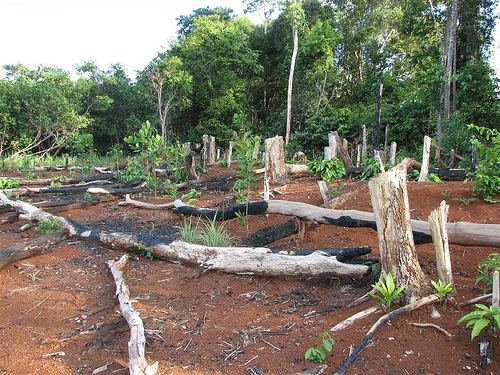Dominican Republic and World Bank sign deal to reduce forest carbon emission
With this Emission Reductions Payment Agreement (ERPA) in place, the Dominican Republic is expected to reduce 5 million tons of forest-related carbon emissions.

The Dominican Republic’s Ministry of Finance and Ministry of Environment and Natural Resources signed a landmark agreement today with the World Bank’s Forest Carbon Partnership Facility (FCPF), unlocking payments of up to US$25 million for verified carbon emission reductions between now and 2025 through the country’s emissions reduction program.
“This agreement is a country achievement, a reason for celebration and progress in the fight against the challenges of climate change and is the result of four years of preparation of the Program for the Reduction of Emissions from Deforestation and Forest Degradation (REDD+), which will be implemented by the Ministry of Environment and Natural Resources, with the direct involvement of the Ministry of Agriculture and the Ministry of Economy, Planning and Development (MEPyD), ” said Milagros De Camps, Vice Minister of International Cooperation of the Ministry of Environment and Natural Resources.
The Dominican Republic’s Emission Reductions Program is a national initiative focused on lowering forest emissions from deforestation and forest degradation across the country's 4.8 million hectares of biodiversity and forest-rich land, to improve local livelihoods and protect natural ecosystems. With this Emission Reductions Payment Agreement (ERPA) in place, the Dominican Republic is expected to reduce 5 million tons of forest-related carbon emissions.
“The Dominican Republic has a long and rich history of protecting its natural resources, having dedicated significant efforts to the conservation and development of its forests,” said Alexandria Valerio, World Bank Representative for the Dominican Republic. “This agreement is further proof of the country’s continued commitment to sustainable forest management and economic development.”
The country’s Emission Reductions program will work with the government and civil society to strengthen sustainable agroforestry initiatives that aim to curb agricultural expansion into forest areas. The program also aims to promote broader and more sustainable natural resource management that can contribute to the growth of small and medium-sized forest enterprises, and the conservation of forests.
The Dominican Republic is the third country in Latin America and the Caribbean (after Chile and Costa Rica) and 14th globally to reach such a milestone agreement with the FCPF, which together have unlocked nearly $670m in results-based financing. ERPAs are innovative instruments that incentivize sustainable land management at scale and help to connect countries with other sources of climate financing. The resources from the FCPF provide new opportunities to conserve and regenerate forest landscapes and biodiversity while supporting sustainable economic growth, which is critical for the Dominican Republic’s development going forward.
- READ MORE ON:
- World Bank
- Dominican Republic
- carbon
- Milagros De Camps
ALSO READ
China Economic Update: World Bank Highlights Need for Structural Reforms and Economic Mobility
Paraguay’s Path to Poverty Reduction: Insights from the World Bank Report
Redefining Progress: The World Bank’s Vision for Comprehensive Wealth
Manipur Takes Leap with ADB and World Bank Projects
World Bank Launches 2025 with AUD 1.75 Billion Sustainable Development Bond in Kangaroo Market










